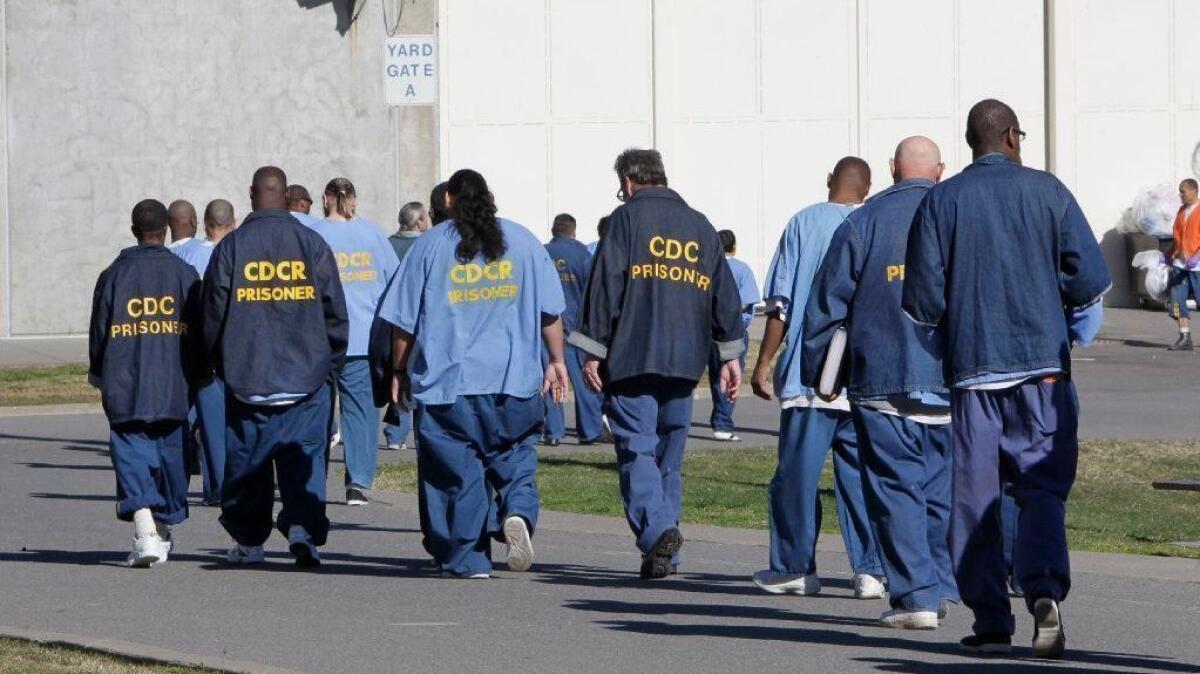Readers React: Anti-recidivism programs won’t work as long as they’re offered only in prison

- Share via
To the editor: Of course anti-recidivism programs in prison don’t work. Prison is a punitive environment in which inmates are constantly subjected to violence or threats of violence. That’s not an ideal learning environment.
Collectively, the clients of the nonprofit group that I lead have a recidivism rate of about 20%, and most participants get jobs.
To lower the recidivism rate, crime and homelessness, no person should leave a state prison without a program for housing, healthcare and help with educational opportunities and employment.
Community-based programs may sound expensive, but they don’t cost as much as new crimes committed and re-arresting, re-trying and re-incarcerating the same people over and over again. And homelessness hurts everyone, including those who experience homelessness and those who want to live in a clean, healthy and compassionate environment.
Marsha Temple, Los Angeles
The writer is executive director of the Integrated Recovery Network.
..
To the editor: I am pleased that the state has implemented ambitious goals for inmate rehabilitation, and I am also pleased that anti-recidivism programs are being evaluated. The evaluation, however, is only that of the internal prison programs.
The state auditors found that poor administrative practices resulted in high recidivism. The article also pointed out that some programs were successful when coupled with community-based services for those who have been released.
No matter what rehabilitation takes place within the prison walls, if the “rehabilitated” person cannot find housing or work, then recidivism is a very high probability. Finding reasonable employment for felons, even with skills learned in rehabilitation, is unusually difficult, and sometimes for good reason.
We must rely on community workers who have knowledge of housing and employment opportunities if we want successful rehabilitation and much lower recidivism.
George H. Wolkon, Pacific Palisades
The writer is a retired deputy director of the Los Angeles County Department of Mental Health.
Follow the Opinion section on Twitter @latimesopinion and Facebook
More to Read
A cure for the common opinion
Get thought-provoking perspectives with our weekly newsletter.
You may occasionally receive promotional content from the Los Angeles Times.









